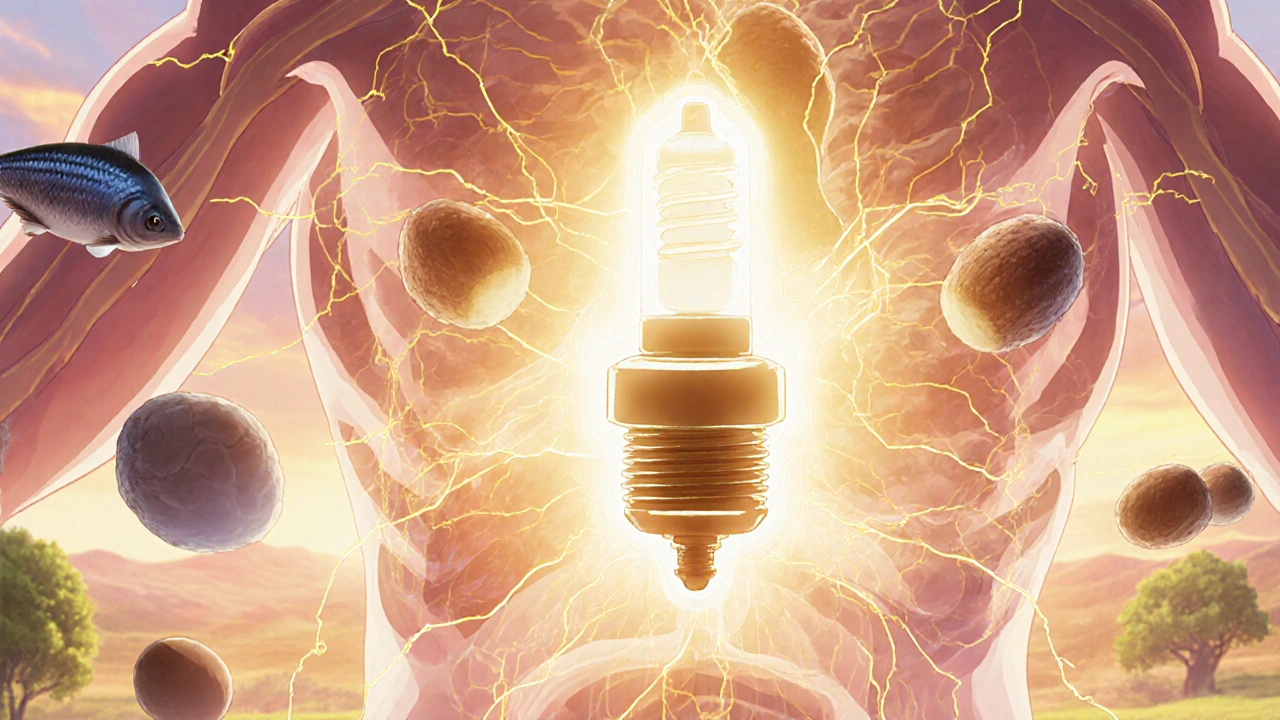Selenium Food Sources: Best Natural Ways to Get This Essential Mineral
When you think about minerals that keep your body running, selenium, a trace mineral critical for thyroid function, immune response, and antioxidant protection. Also known as Se, it doesn’t take much—just a few nuts a day—but without it, your body struggles to fight off infections, manage hormones, or repair cell damage. Most people get enough from food, but if you’re vegan, live in a low-selenium region, or have thyroid issues, you might not be getting what you need.
Selenium isn’t just a single nutrient—it’s part of a bigger system. It works with iodine, a mineral essential for thyroid hormone production to keep your metabolism stable. It also teams up with vitamin E, a powerful antioxidant that protects cell membranes to reduce oxidative stress. Without enough selenium, your body can’t make the enzymes that clean up harmful free radicals, which can lead to inflammation and long-term damage. That’s why people with chronic conditions like Hashimoto’s or recurrent infections often check their selenium levels.
You won’t find selenium in every grocery aisle, but it’s packed into a few powerful sources. Brazil nuts are the undisputed champion—one nut can give you your whole daily dose. Just don’t eat more than 3-4 a day; too much can be toxic. Seafood like tuna, halibut, and sardines are also top choices, especially if you eat fish a few times a week. Eggs, chicken, and turkey offer steady, reliable amounts, and whole grains like brown rice and oats contain selenium too—though the amount depends on the soil they grew in. If you’re vegetarian, mushrooms and sunflower seeds can help fill the gap, but they’re not as strong as animal-based sources.
Why does this matter right now? Because more people are skipping processed foods and turning to whole, natural diets—and that’s great, unless you’re cutting out the few foods that naturally give you selenium. If you’re avoiding meat, dairy, or seafood, or if you’re trying to lose weight and eating very little, you might be at risk. The good news? Fixing a mild deficiency is easy. Just add a couple of Brazil nuts to your morning yogurt or swap your white bread for whole grain. No pills needed.
Below, you’ll find real, evidence-backed posts that dig into how selenium affects your health—from thyroid balance to immune strength—and what happens when you don’t get enough. Some of them compare supplements to food sources, others show how selenium interacts with medications like thyroid drugs or blood thinners. You won’t find fluff here—just clear, practical info that helps you make smarter choices without guessing.

